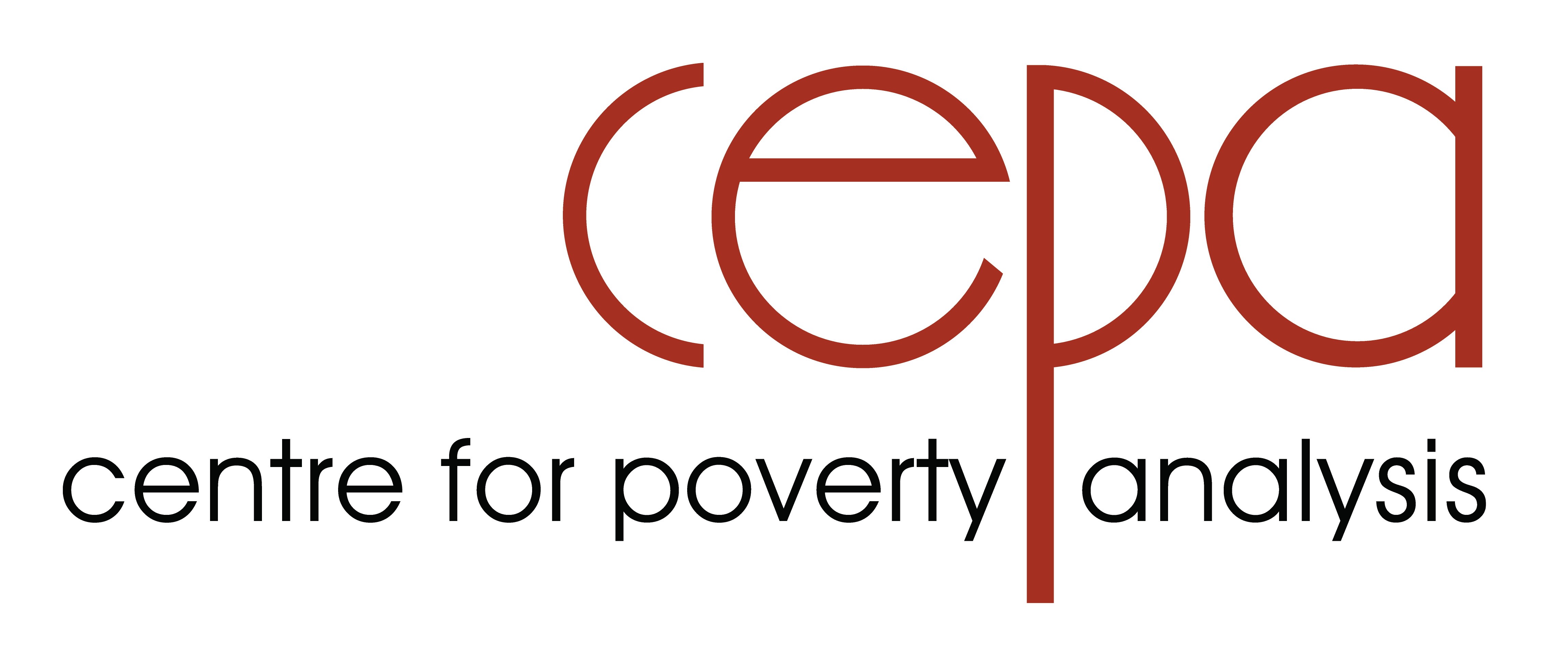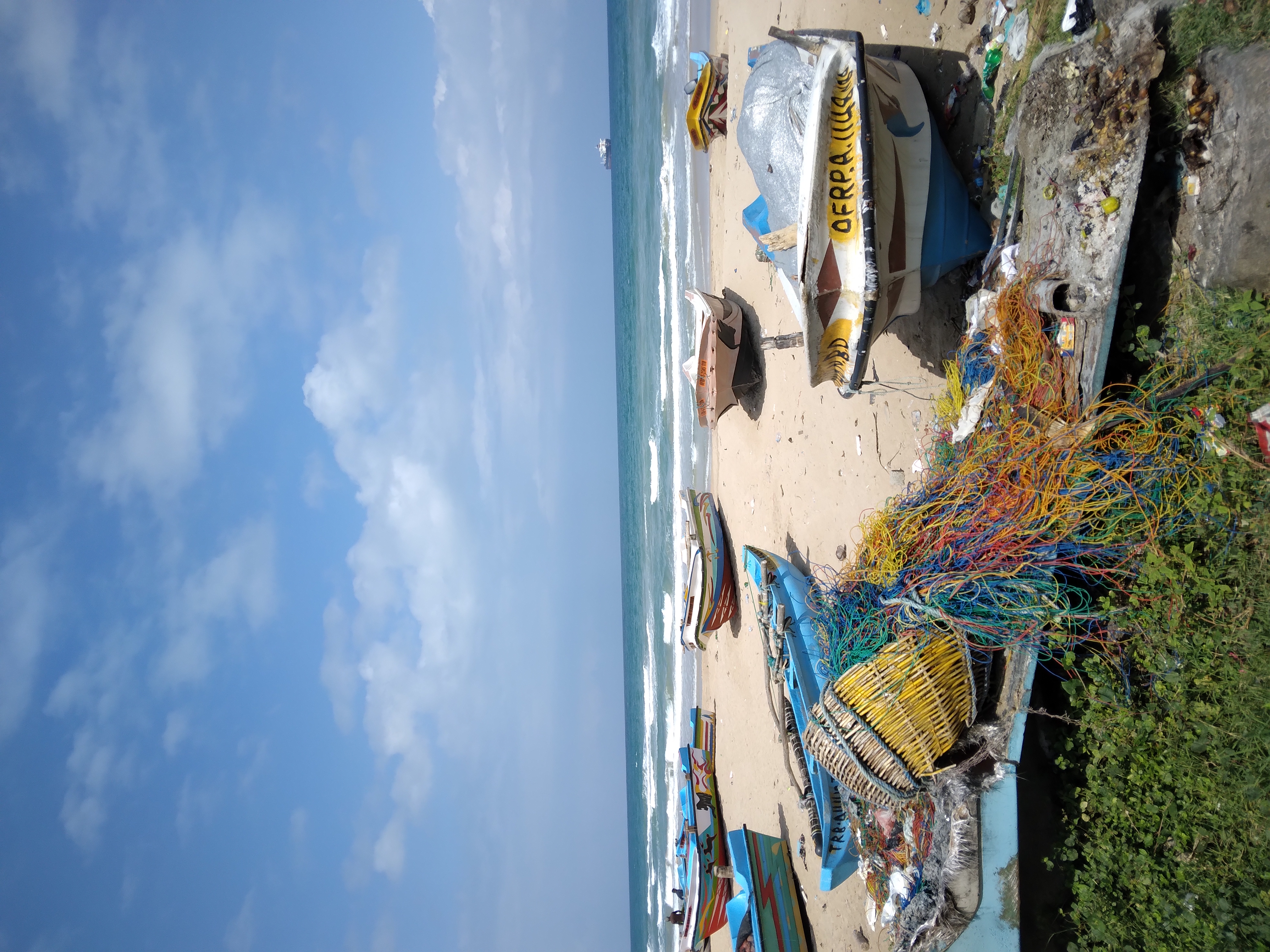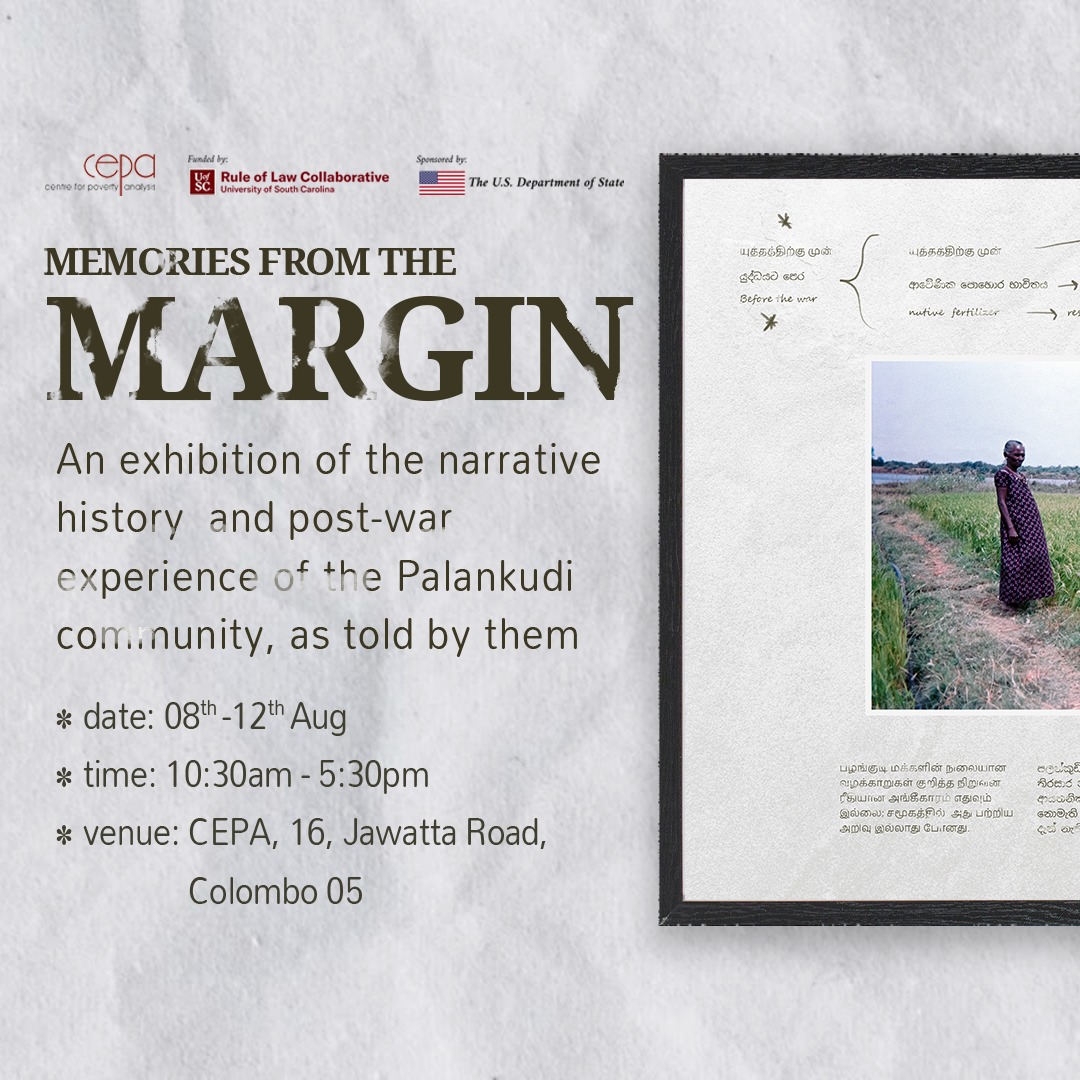CEPA In Sight – Vol. 11
August 2022 | Vol. 11
The fisheries industry is a key sector in Sri Lanka, supporting up to 2.7 million fishers, workers and families. Highlighted below are some of CEPA's more recent publications and works carried out focusing on sociology of fisheries, labour conditions in the sector, gendered dynamics in the sector and the sustainability of marine resources.
CEPA in Sight
Vantage Point
A Newsletter by The Centre for Poverty Analysis

Hello! This volume of CEPA’s newsletter focuses on our work on the fisheries sector in Sri Lanka. Connect with us at insight@cepa.lk with your thoughts, suggestions and ideas for collaboration.
The ILO Work in Fishing Convention, 2007 (No. 188) which entered into force on 16th November 2017 aims to ensure decent work conditions in the fisheries sector. It contains provisions regarding minimum requirements of work on board, conditions of service, accommodation and food, occupational safety and health, medical care and social security. Sri Lanka is yet to ratify this Convention, despite Sri Lankan fisheries sector being fundamental to the country’s food security and employing about seven per cent of the total labour force’ (ILO, 2020: ix). Fish workers remain formally unprotected in terms of their labour rights.
In order to encourage ratification, CEPA had been commissioned by the ILO Country Office for Sri Lanka and the Maldives to carry out background work, a legal gap analysis and a multi-stakeholder consultation process towards the ratification of the Work in Fishing Convention, 2007 (No.188). Having completed the background report CEPA is in the process of initiating the stakeholder consultations with the relevant government officials, employer’ and workers’ organisations representing fish workers and fishing communities, on possible ratification.
Plastic pollution has become an emerging issue in the South Asian region in the recent years, with the majority of sea-based sources of marine plastic pollution originating from fishing and fishing related activities. This project, initiated by the Centre for Environment, Fisheries and Aquaculture (Cefas) to collect data on ALDFG and end of life (EOL) fishing gear, is aimed at better understanding ALDFG, its causes, impacts and insight into probable solutions. Evolved Research and Consulting Ltd (ERC) was the prime contractor, and CEPA led the implementation of a survey which reached 325 vessel owners, fishers and crewmembers from five coastal districts in the country to understand the occurrence of ALDFG, causes, management measures and proposed mitigation measures. The study findings will be made available soon as per the open data policy of Cefas.
Abandoned, Lost or otherwise Discarded Fishing Gear (ALDFG) in Sri Lanka
Gender
in Fisheries
Social Science Research Council
The Research Collaboratory, led by CEPA, titled ‘Rupture, Gendered Adaptation, and the Social Economy of Indian Ocean Fisheries’ aims to investigate the impact of economic and environmental ruptures on small-scale fisheries covering India, Sri Lanka, Cambodia and Kenya, and how these are mediated by intersectional social relations such as gender, race/ethnicity, caste, class and place. The research strives to further understand how different regional social economic of fisheries in the Indian Ocean such as Blue Economy initiatives, changing environmental conditions and resulting shrinking of space for small scale fishers shape possibility for adaptation to rupture.
The funding from SSRC Transregional Planning Grants, (link below)- enabled the research in Sri Lanka to study ongoing multiple crises that affected the coastal communities over the last few years: the MV Xpress Pearl related disaster, impacts of COVID 19 and the ongoing economic and political crisis affecting the coastal communities in Negombo.
Labour
in Fisheries
Work in Fishing Convention, 2007 (No.188):
Netting Gains for Sri Lanka
Scoping of Ocean Conservation Opportunities in Sri Lanka – Social, Gender, and Community Component
Co-management, wherein the community actively participates in the conservation of and decision making regarding natural resources, is identified as a necessary step for sustainable management of resources. It helps prevent overuse and exploitation of resources, assures transparency and accountability, and empowers communities. However, despite Sri Lanka having pledged to conserve at least 10 per cent of coastal and marine areas, as per SDG 14.5, there is still a long way to go in realizing this goal. Therefore, this review analyses the potential of employing co-management structures to effectively conserve marine protected areas.

Marine Resource
Sustainability
The MV X-Press Pearl disaster that took place on 20th May 2021, is not only the second maritime disaster that the country witnessed in 2021 but is also dubbed the worst maritime disaster in the country’s history. The disaster had varying effects on the sensitive coastal ecosystems, the coastal communities, and the Sri Lankan economy. Against this backdrop, CEPA explored the socio-economic impacts the shipping disaster had on the coastal fishing communities, who at the time were made doubly vulnerable by the mobility restrictions imposed to curb the spread of COVID-19.
Assessing the impacts of the MV X-Press Pearl disaster
Sociology
in Fisheries
What are your future plans as a researcher?
Since we have been working on specific youth areas, I would like to do some research on the impact of social media and its trends to understand the way in which people engage in political discussions in the virtual world. I would also like to continue my post-graduate studies and write on youth, media, and other issues that I am passionate about.
Past
Events
May - July 2022
31
What are your main areas of interests?
MEET A
CEPA
RESEARCHER
Who is Karin Fernando and what roles do you play at CEPA?
Given the climate emergency we are facing right now, as a researcher, what do you think should be done to minimize the conflict between the country’s marine resources and coastal communities?
As the leader of sustainability thematic, you have worked on several fisheries related projects. What interesting insights have you learned from them?
Although it is hard to achieve there needs to be co-management of resources – with greater stewardship from all parties who are held accountable for their actions. There also has to be trusted / accepted conflict resolution/prevention mechanisms inbuilt into management processes.
9th June
Thilani Kaushalya presented and Gayathri Lokuge participated in this virtual event organised by the International Council of Voluntary Agencies (ICVA).
10th June
Thilani Kaushalya and Nadhiya Najab participated at the ADB's Serendipity Knowledge Program for Sri Lanka 2022: Solutions to Mitigate Learning Losses due to COVID-19 Pandemic and Economic Crisis in Colombo. At this event, the findings from the tracer studies conducted on behalf of the ADB to assess the employability of vocational training graduates were highlighted as a source of insight for future decision making.
If the oceans are to survive and continue to provide for us – there needs to be acceptance of the mutual dependency and willingness to make trade-offs today to ensure that there is a tomorrow. This is never simple when there are so many different beneficiaries and their complex interactions and interpretations of cause and effect.
Emergency Preparedness Working Group in Asia-Pacific
Serendipity Knowledge Program for Sri Lanka 2022
Understanding the nexus between poverty, vulnerability and environmental health, and looking at ways we can achieve wellbeing of people and the planet, not one over the other.
5th May
Nadhiya Najab presented at this one-day workshop targeting academic/non-academic staff of the Faculty of Technology at the Sabaragamuwa University and limited number of academic staff from other faculties. The workshop was conducted as part of the STHRD project by the Ministry of Education and funded by the Asian Development Bank (ADB).
Workshop on Creating Gender
13th June
Karin Fernando attended the Symposium on Scaling up of Good Practices leading to Policy Implications in Colombo Wetland Landscape on the 13th of June.
Symposium on Scaling up of Good Practices leading to Policy Implications in Colombo Wetland Landscape
14th June
Karin Fernando attended an Expert/Stakeholder Review Lab and Validation Workshop held online on the 14th of June where she provided inputs into the People's Review of SDG1.
Expert/Stakeholder Review Lab and Validation Workshop
Watch: Socio-Economic Impacts of the MV X-Press Pearl Disaster on Fisher Groups
15th June
Government Stakeholders Consultation
Heli De Silva, Mohamed Munas and Gayathri Lokuge attended the ILO C188 ratification government stakeholders consultation on the 15th of June, at Hotel Renuka.
CEPA ජ්යෙෂ්ඨ පර්යේෂක ආචාර්ය ගයත්රි ලොකුගේ ආරම්භක අදහස් දැක්වීම සිදු කළ අතර, කථිකයන් වූයේ CEPA ජ්යෙෂ්ඨ පර්යේෂක තිලානි කෞෂල්යා , SUN PF ව්යාපෘති අධ්යක්ෂ දිල්කා පීරිස් මහත්මිය සහ පේරාදෙණිය විශ්වවිද්යාලයේ ජ්යෙෂ්ඨ කථිකාචාර්ය ආචාර්ය ප්රදීපා කෝරළේ ගෙදර. වෛද්ය සුසී පෙරේරා සහ මහාචාර්ය බුද්ධි මාරඹේ මෙයට දායක වූයේ සාකච්ඡා මඩුල්ල හරහාය. කතිකාවේ මෙහෙයවන්නා ආචාර්ය ආර් එම් කේ රත්නායක විය.
ලංකාවේ වත්මන් ආර්ථික අර්බුදය හමුවේ ප්රමාණවත් සහ සෞඛ්ය සම්පන්න ආහාර සහතික කිරීම, ජුනි 29 වැනි බදාදා පැවැත්වුණු CEPA 66 වැනි විවෘත කතිකාවේ මාතෘකාව විය.
I play several roles that revolve around working with everyone at CEPA to make sure we stay relevant and provide quality inputs to clients, policy makers and other audiences. This involves getting involved in different thematic work, working on communications and policy engagement, networkiing and also on organisational management.

8th June
Know Your Oceans - World Oceans Day 2022
Gayathri Lokuge was a speaker at an event organised by Blue Resources Trust in collaboration with the Australian High Commission, Sri Lanka and Maldives and the Tokyo Cement Group.
CEPA
Open
Forum
The opening of Memories from the Margin photography exhibition and the launch of the policy brief From the Margins of War: The Post War Experience of the Palankudi Community, took place on the 8th August at the CEPA premises.
The exhibition showcasing the history, culture and post-war experiences of the Palankudi (indigenous) community will be open to the public from 8th - 12th August from 10.30am - 5.30pm.
Memories from the Margin